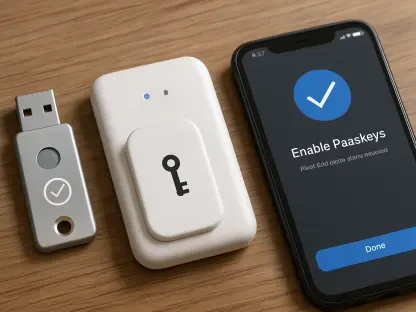I’m thrilled to sit down with Rupert Marais, our in-house security specialist with deep expertise in endpoint and device security, cybersecurity strategies, and network management. Today, we’re diving into a chilling case of fraud and emotional manipulation perpetrated by a man who preyed on vulnerable women with elaborate lies. Rupert has extensively studied cases like this, where trust is weaponized for personal gain, and he’ll shed light on the tactics used, the devastating impact on victims, and the broader implications of such predatory behavior. Our conversation explores how deception unfolds in personal relationships, the psychological and financial toll on those targeted, and what can be learned from such cases to prevent future harm.
Can you walk us through how someone like this predator first builds trust with their victims?
Absolutely. Individuals like this often start by presenting themselves as empathetic and relatable. They craft stories that tug at heartstrings—think tales of personal loss or health struggles. In this case, the perpetrator spun narratives about dying relatives or severe medical conditions to appear vulnerable himself. This creates a bond, as victims feel a shared sense of humanity or a desire to help. They often target people who may already be emotionally open or seeking connection, making it easier to establish a foundation of trust before the manipulation deepens.
What kinds of fabricated stories or excuses are commonly used in these schemes to manipulate emotions?
These con artists are skilled at weaving intricate lies that hit on universal pain points. They might invent tragic family scenarios—like a sibling lost to illness or a parent in critical condition—to evoke sympathy. In this instance, the man fabricated stories about a sister dying of cancer and a brother’s suicide attempt. Health-related deception is also common, such as claiming to need urgent medical treatment, which was seen here with a fake heart condition. These stories aren’t just random; they’re designed to make the victim feel obligated to support or “save” the deceiver.
How do fraudsters typically use the money they obtain through these deceptions?
Often, the money is funneled into personal vices or unsustainable lifestyles. In this particular case, police uncovered that a significant portion—thousands per month—was spent on online gambling. That’s a common pattern; the funds rarely go toward anything productive or long-term. Instead, they fuel habits or immediate gratification, with little regard for the victims left in financial ruin. Sometimes there’s evidence of other spending, but here, gambling seemed to be the primary drain.
Can you describe the emotional and psychological impact on victims who fall prey to such elaborate scams?
The toll is profound and multifaceted. Victims often describe feeling betrayed on a deeply personal level, as their empathy was exploited. Many suffer from lasting mental health challenges, like anxiety or depression, stemming from the violation of trust. In this case, the women spoke of losing faith in others and even in their own judgment. The sense of being a pawn in someone’s game can shatter self-esteem, leaving scars that affect future relationships and their ability to connect with people.
What about the financial fallout for those who were deceived?
The financial damage can be catastrophic. Victims often lose savings, inheritances, or take on debt through loans or credit cards opened fraudulently in their names, as happened here with one woman losing £20,000. The aftermath means struggling to rebuild financially while dealing with the emotional weight of the loss. It’s not just about the money—it’s the future plans or security that money represented, which are now gone, leaving victims in a precarious spot with limited resources to recover.
How do victims typically come to realize they’ve been manipulated in situations like this?
It often takes a jarring inconsistency or a moment of absence to break the illusion. For instance, in this case, one victim grew suspicious when the man didn’t return home, later discovering he’d been jailed. Another noticed staged emotional phone calls with no one on the other end. These red flags, though subtle at first, start to unravel the web of lies. Unfortunately, by the time realization hits, the damage—both emotional and financial—is usually already done.
What can you tell us about the legal consequences for someone who orchestrates this kind of fraud?
The legal system tends to take these cases seriously, especially when there’s a pattern of predatory behavior. In this situation, the perpetrator was sentenced to nearly three years in prison after pleading guilty to multiple counts of fraud by false representation. Previous offenses often play a role in sentencing, as they did here, showing a history of similar deceit. While prison time offers some justice, it doesn’t always undo the harm, and the focus often shifts to preventing recidivism.
From a security perspective, what makes someone like this such a dangerous manipulator?
What stands out is their ability to exploit human nature itself. They weaponize trust and empathy, which are core to how we connect as people. In this case, the police described the individual as a “master of manipulation,” and that’s apt—they maintain complex lies over long periods without apparent guilt. Unlike typical cybercriminals who hide behind screens, these predators operate face-to-face, making their deception feel more personal and harder to detect until it’s too late.
What advice do you have for our readers to protect themselves from falling victim to similar emotional manipulation and fraud?
My biggest piece of advice is to trust your instincts and verify before you invest—emotionally or financially. If someone’s story seems overly dramatic or they’re quick to ask for money, take a step back. Check their claims independently, even if it feels uncomfortable. Build boundaries early in relationships, especially when it comes to sharing personal or financial details. And remember, it’s okay to seek support from friends, family, or professionals if something feels off. Awareness and skepticism can be your best defense against these predators.









